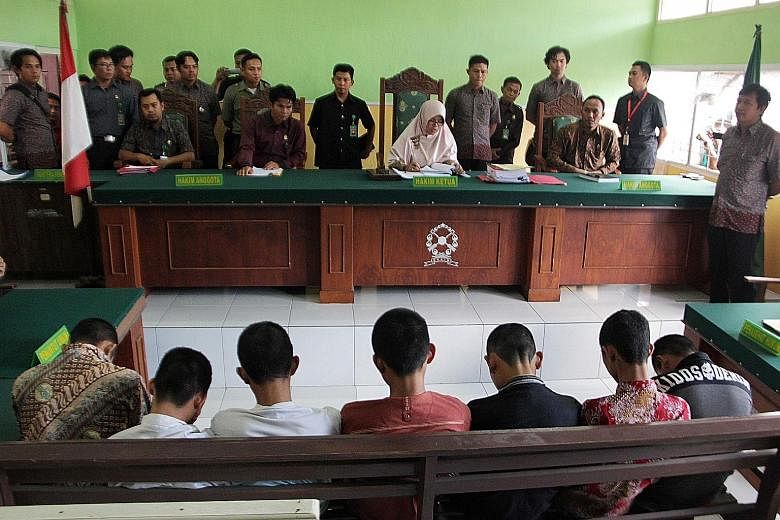Indonesians have mostly welcomed President Joko Widodo's move to introduce tougher penalties for child sex offenders, which include chemical castration and the death penalty.
Mr Joko signed on Wednesday an emergency law - known as a perppu - that allows courts to increase penalties for sex crimes after the media highlighted a growing number of attacks against children.
Previously, the maximum sentence for a child sex offence was 15 years' jail.
"This crime threatens and endangers the soul of our children. Sexual crime has disturbed peace, security and public order," Mr Joko said after signing the perppu, or decree.
Many on social media approved the move, with remarks ranging from "thank you Mr President", posted by Ms Nyi Iteung, to "death penalty is the right choice", by Mr Mustafa.
"The perppu shows a serious commitment by the President to prevent child sex offences. Although it is a bit radical, I strongly agree with the move," Mr Pade Wetan, a resident of Central Kalimantan province, posted on his Facebook page.
Indonesia's Constitution gives the President the right to issue a rule in lieu of law (perppu) when he determines one in necessitated by an emergency in the country.
Perppu is immediately effective after the President signs it, and Parliament can either let it remain effective or end it within a year after the perppu is issued.
Some rights activists, including Mr Supriyadi Widodo Eddyono, the executive director of the Institute for Criminal Justice Reform, backed harsher punishments for rapists but said it was not necessary to go as far as chemical castration or the death penalty.
Law and Human Rights Minister Yasonna H. Laoly said castration or other heavier sanctions would be applied only under certain conditions, for example, if the culprit was a repeat offender, committed an offence as part of a group or was a paedophile.
On the day the decree was signed, the local media reported the case of a six-year-old schoolgirl in Sorong, Papua province, who was allegedly raped by her step-grandfather on Monday.
The man is also alleged to have raped his biological daughter, aged 11, a few days before he raped the younger girl, according to police investigations. The man only recently married the grandmother of the little girl who, according to local media reports, had been abandoned by her parents.
Last month, 14 males - many younger than 18 - gang-raped and murdered a 14-year-old girl in Bengkulu in South Sumatra.
On May 12, two men and a 15-year-old boy gang-raped and killed an 18-year-old factory worker.
With the new decree, judges may also order electronic-tagging with an implanted chip for convicted criminals and order that they be publicly identified.

